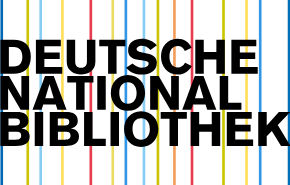THE RELEVANCE OF USING EFFECTIVE WAYS TO INCREASE STUDENTS' INDEPENDENT AND CREATIVE THINKING IN READING LITERACY LESSONS
DOI:
https://doi.org/10.55640/Keywords:
reading literacy, independent thinking, creative thinking, student activity, critical thinking, methodological approach, information immunity, information culture, harmful information, moral decision, pedagogical protection, technology.Abstract
This article analyzes effective ways to form independent and creative thinking of students in reading literacy lessons. Methods aimed at developing independent thinking, mechanisms for encouraging students to think actively through creative tasks, dramatization and debates are highlighted. The importance of modern graphic tools and interactive methods is also revealed. Modern information technologies and the study of foreign languages are important not only for academic success, but also in professional activities. Based on the studied theoretical sources and practical examples, effective methods for forming moral and information immunity are analyzed.
Downloads
References
1. Decree of the President of the Republic of Uzbekistan No. PF-6108, November 6, 2020. “On measures to support the spiritual, educational and intellectual development of youth.”
2. UNESCO, Montoya S. Defining literacy. GAML fifth meeting, Germany, 2018.
3. Barnett, W. Preschool education for economically disadvantaged children: Effects on reading achievement and related outcomes. In S. B. Neuman & D. K. Dickinson (Eds.), Handbook of early literacy research, Vol. 1, pp. 421-443. New York: Guilford Press.
4. To'raqulov X.A. Pedagogik tadqiqotlarda axborot tizimlari va texnologiyalari. -T.;Fan, 2007.
5. www.gov.karelia.ru/Leader/Gossovet/d14.html.
6. Azizxodjayeva N.N. Pedagogik texnologiyalar va pedagogik mahorat. - T.: 2018. - 2001
7. Raxmonova G.S.Hakimova.N.S. O'quvchilarni ma'naviy axloqiy tarbiyalashda interfaol metodlardan foydalanish// Oriental renaissance:Innovative, educational, natural and social sciences.-2022.-T.2.-C.67-72.
8. Ozbekiston Respublikasi Xalq talimi vazirligi. “Oqish savodxonligi boyicha metodik qollanma”. Toshkent, 2022.
9. Vygotskiy, L. S. “Pedagogik psixologiya”. — Toshkent: Oqituvchi, 1991
10. Shodmonov M., Qosimova D. “Tanqidiy fikrlash asoslari”. — Toshkent: Fan, 2021
Downloads
Published
Issue
Section
License

This work is licensed under a Creative Commons Attribution 4.0 International License.
Authors retain the copyright of their manuscripts, and all Open Access articles are disseminated under the terms of the Creative Commons Attribution License 4.0 (CC-BY), which licenses unrestricted use, distribution, and reproduction in any medium, provided that the original work is appropriately cited. The use of general descriptive names, trade names, trademarks, and so forth in this publication, even if not specifically identified, does not imply that these names are not protected by the relevant laws and regulations.







